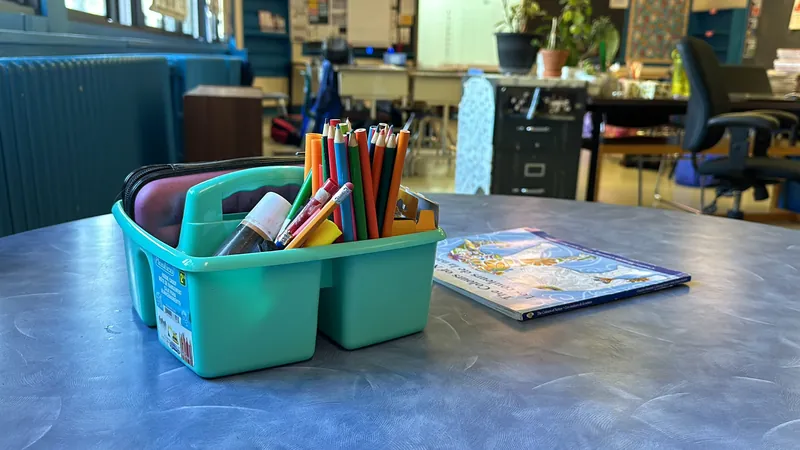
How Quebec's New Study Reveals Daycare's Crucial Role in Allophone Children's Kindergarten Readiness!
2024-11-28
Author: Sophie
A groundbreaking study from Quebec has unveiled that Allophone children who attend daycare are significantly better equipped for kindergarten compared to their peers who do not. This pivotal research highlights the unique challenges faced by Allophone children—those who communicate in a language other than French or English at home—when they begin their academic journeys.
Professor Sylvana Côté from the Université de Montréal conducted the study, which drew upon extensive data from the Quebec Survey on Child Development in Kindergarten. It found that nearly 6.1% of kindergarteners in Quebec come from Allophone families, with a concerning 14% of these children remaining at home before entering school—a stark contrast to the 6% of French-speaking children who experienced the same.
Why is this significant? Côté explained that children from non-French-speaking households often struggle with communication and learning once they reach kindergarten, potentially hindering their academic progress. The study revealed that preschool education helps bridge the gap between Allophone children and their French-speaking counterparts, ensuring all children have a fair start.
“Exposure to other children and educational staff significantly boosts a child's readiness for school,” said Côté. “Preschool services are vital in equipping these kids with the social and academic skills they need to thrive.”
The research highlighted notable advancements in cognitive, social, and emotional skills among Allophone children who attended daycare. By engaging in a preschool environment, these children gain essential knowledge and communication skills that may differ from conventional expectations, and the result is a well-rounded preparation for school.
Côté stressed the importance of early multicultural interactions. “Making friends with children from different backgrounds at a young age diminishes future reluctance towards cultural diversity,” she stated. The implications are clear—integrating Allophone children into daycare environments benefits not just them, but enhances the social fabric for everyone.
Yet the study warns that inadequate access to quality preschool education for Allophone children may lead to long-lasting educational disadvantages. Côté further argues that to foster inclusivity and cultural respect within education systems, policy changes are essential.
"The results of this research suggest that our approach to welcoming foreign families must include strategies that ensure Allophone children have access to preschool services," Côté said. "A child’s readiness for school is critical in predicting their future educational success, thereby making it a priority that we start them off on the right foot."
As the landscape of Quebec continues to evolve with increasing cultural diversity, establishing accessible, high-quality preschool education is of utmost importance. Not only does it prepare Allophone children for their academic paths, but it enriches the entire educational environment, fostering a richer, multicultural society.
The study's findings have been officially published in the distinguished medical journal, JAMA Pediatrics, marking a vital step forward in understanding early childhood education's role in language acquisition and social integration. Could this research be the key to transforming educational policies for Allophone families? Only time will tell.









 Brasil (PT)
Brasil (PT)
 Canada (EN)
Canada (EN)
 Chile (ES)
Chile (ES)
 España (ES)
España (ES)
 France (FR)
France (FR)
 Hong Kong (EN)
Hong Kong (EN)
 Italia (IT)
Italia (IT)
 日本 (JA)
日本 (JA)
 Magyarország (HU)
Magyarország (HU)
 Norge (NO)
Norge (NO)
 Polska (PL)
Polska (PL)
 Schweiz (DE)
Schweiz (DE)
 Singapore (EN)
Singapore (EN)
 Sverige (SV)
Sverige (SV)
 Suomi (FI)
Suomi (FI)
 Türkiye (TR)
Türkiye (TR)